In today’s data-driven world, efficient database management is crucial for enterprises aiming to handle vast amounts of information seamlessly. The right database management tools not only streamline operations but also ensure data integrity, security, and accessibility.
Whether it’s for transactional systems, data warehousing, or analytics, businesses rely on robust solutions to optimize performance. Here are the top 8 database management tools that enterprises trust in 2025.
1. Oracle Database
Oracle Database continues to dominate as a reliable choice for enterprise-level database management. Its strength lies in its reliability and scalability, with advanced features like Real Application Clusters (RAC) and Data Guard that ensure high availability and minimal downtime.
It also boasts robust security measures, including encryption, auditing, and access controls, and supports multiple data models such as relational, spatial, graph, and JSON. While its extensive capabilities make it ideal for large enterprises requiring high-performance systems, its complexity and high licensing costs may deter smaller businesses from adopting it.

2. Microsoft SQL Server
Microsoft SQL Server remains a highly trusted solution for managing structured and semi-structured data. It integrates effortlessly with Microsoft’s ecosystem, including Azure Cloud and Power BI, providing a cohesive experience for businesses already using Microsoft tools. SQL Server offers user-friendly tools for database creation, management, and reporting, along with built-in AI and machine learning features for advanced analytics.
Security is another strong point, with features like Transparent Data Encryption (TDE) and Always Encrypted ensuring data protection. Its hybrid cloud capabilities and compatibility with various programming languages make it a versatile option for enterprises of all sizes.
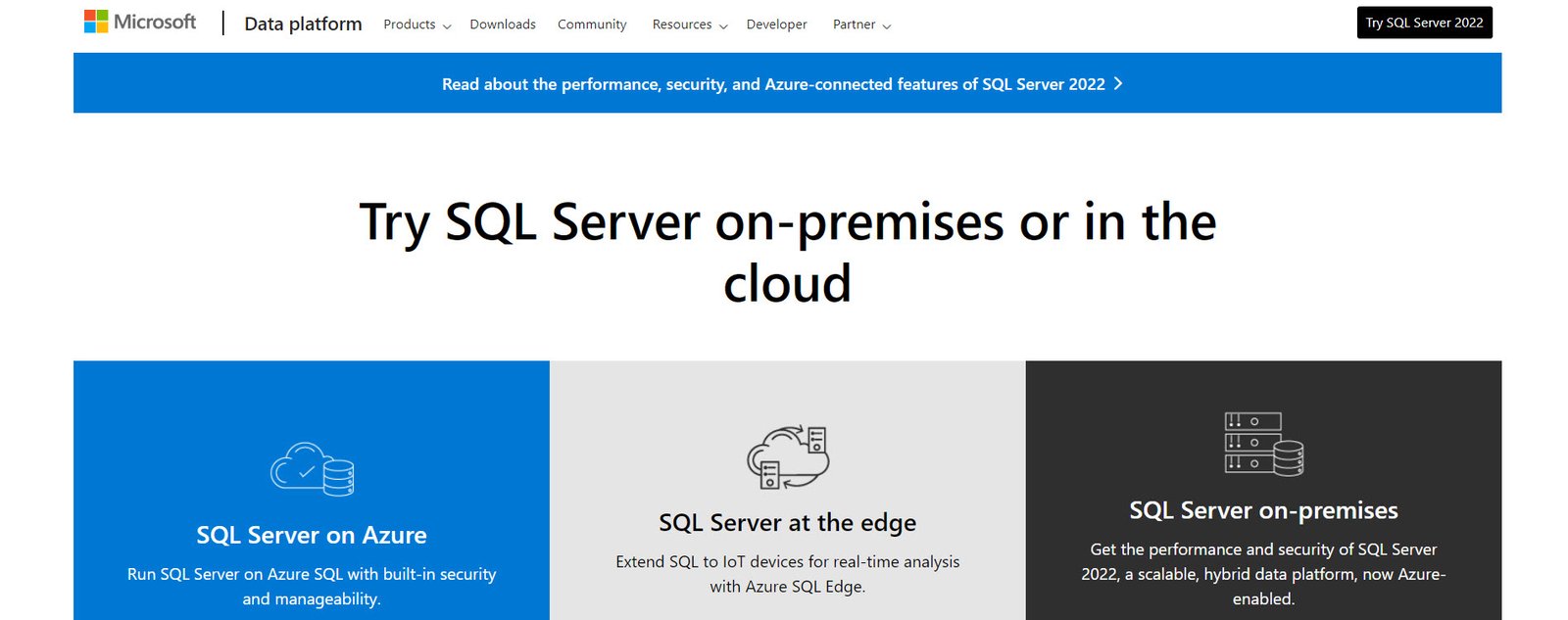
3. MySQL
MySQL, the widely used open-source relational database, is a favorite among startups and small to medium-sized enterprises (SMEs). It is particularly valued for its cost-effectiveness, offering a free community edition alongside paid support options.
Optimized for read-heavy operations, MySQL delivers high performance and operates seamlessly across platforms such as Windows, Linux, and macOS. However, while it excels in smaller workloads, MySQL’s scalability may fall short compared to other enterprise-grade solutions, making it more suitable for smaller organizations or specific use cases.
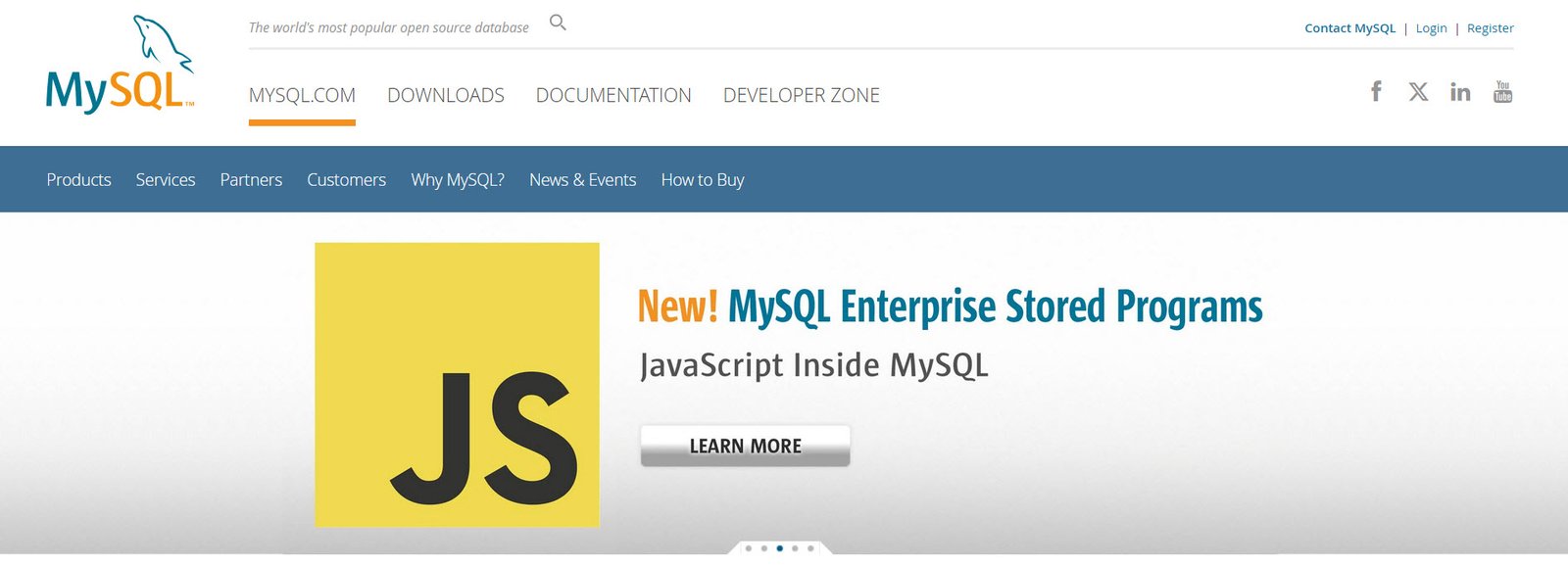
4. PostgreSQL
PostgreSQL, an advanced open-source database, has earned its place as a robust and feature-rich solution for enterprises. Its extensibility allows businesses to create custom data types, functions, and operators, while its ACID compliance ensures reliable data handling.
PostgreSQL also supports complex queries with advanced SQL, JSON, and indexing capabilities. With strong community backing and frequent updates, it is widely trusted by enterprises like Apple and Instagram, making it a preferred choice for businesses handling complex data requirements and innovative solutions.

5. MongoDB
MongoDB, a leading NoSQL database, is designed to manage unstructured and semi-structured data with ease. Its document-oriented storage, which stores data in BSON format similar to JSON, is particularly well-suited for applications requiring high scalability and flexibility.
MongoDB’s ability to scale horizontally through sharding makes it ideal for distributed systems, while its dynamic schema capabilities cater to agile development environments. Its utility in handling large datasets with varying structures makes it an indispensable tool for modern, data-intensive applications.
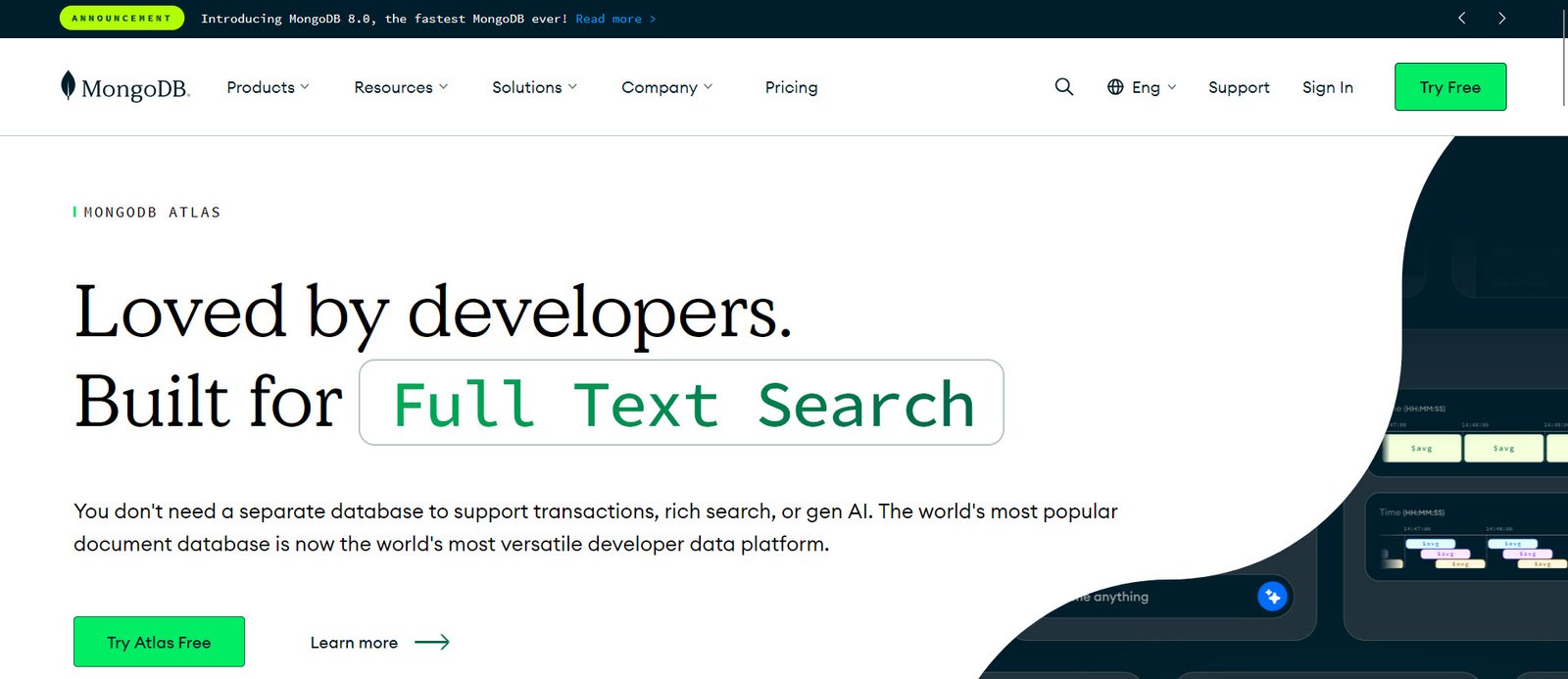
6. IBM Db2
IBM Db2 offers enterprises powerful tools for high-performance analytics and transactional processing. Seamlessly integrating with IBM’s cloud and AI solutions, Db2 provides advanced capabilities like AI-powered insights for predictive analytics, multi-model support for relational, graph, and XML data, and high-speed data retrieval for efficient operations.
Its scalability and enterprise-grade features make it particularly well-suited for industries such as finance and healthcare, where data reliability and performance are critical.
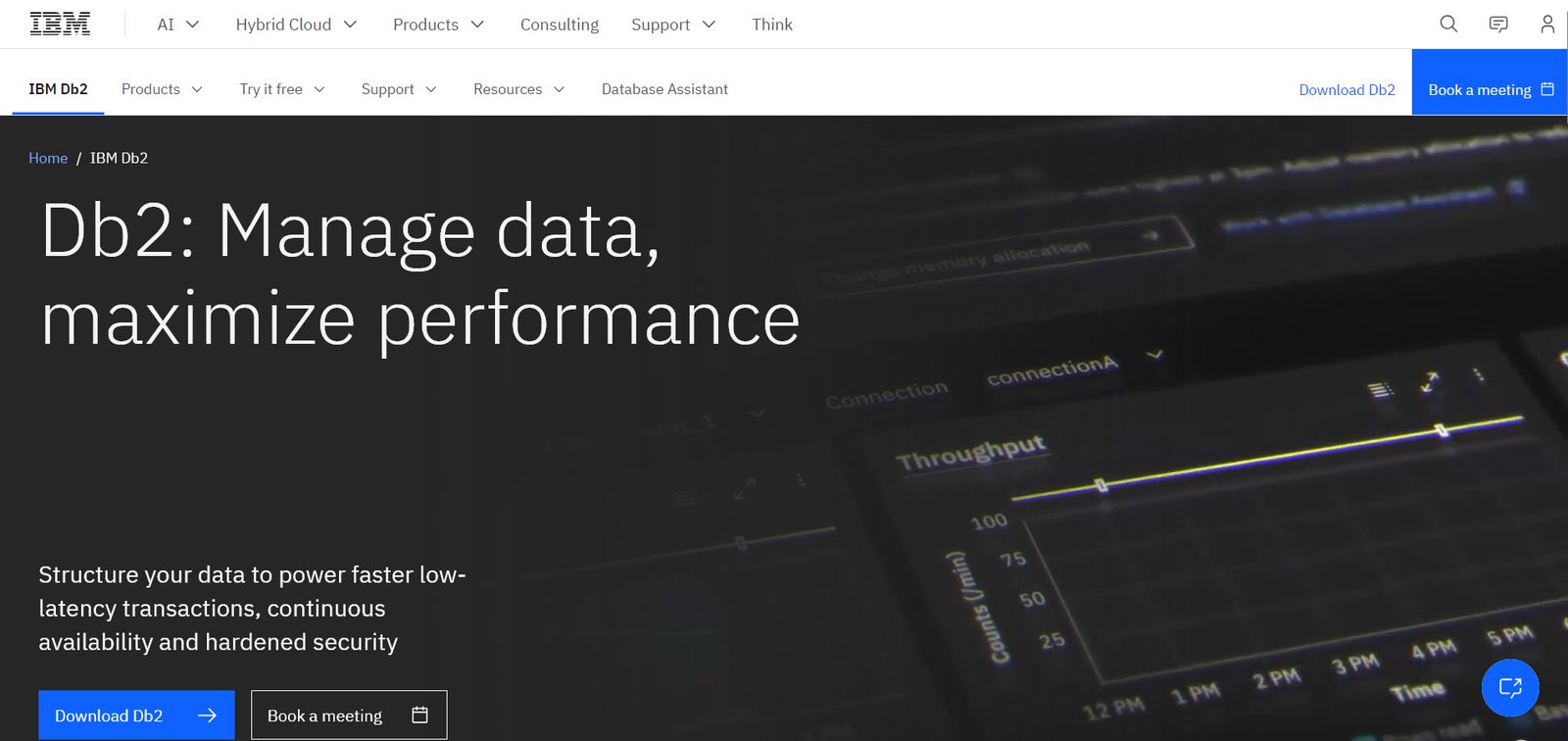
7. Amazon Aurora
Amazon Aurora, part of Amazon Web Services (AWS), stands out as a fully managed relational database service that combines the speed and reliability of high-end commercial databases with the simplicity of open-source systems.
Aurora’s compatibility with MySQL and PostgreSQL ensures smooth integration for existing users, while its auto-scaling capabilities dynamically adjust resources based on demand. With global accessibility through multi-region replication, it is a go-to solution for enterprises leveraging AWS infrastructure to achieve high availability and performance.
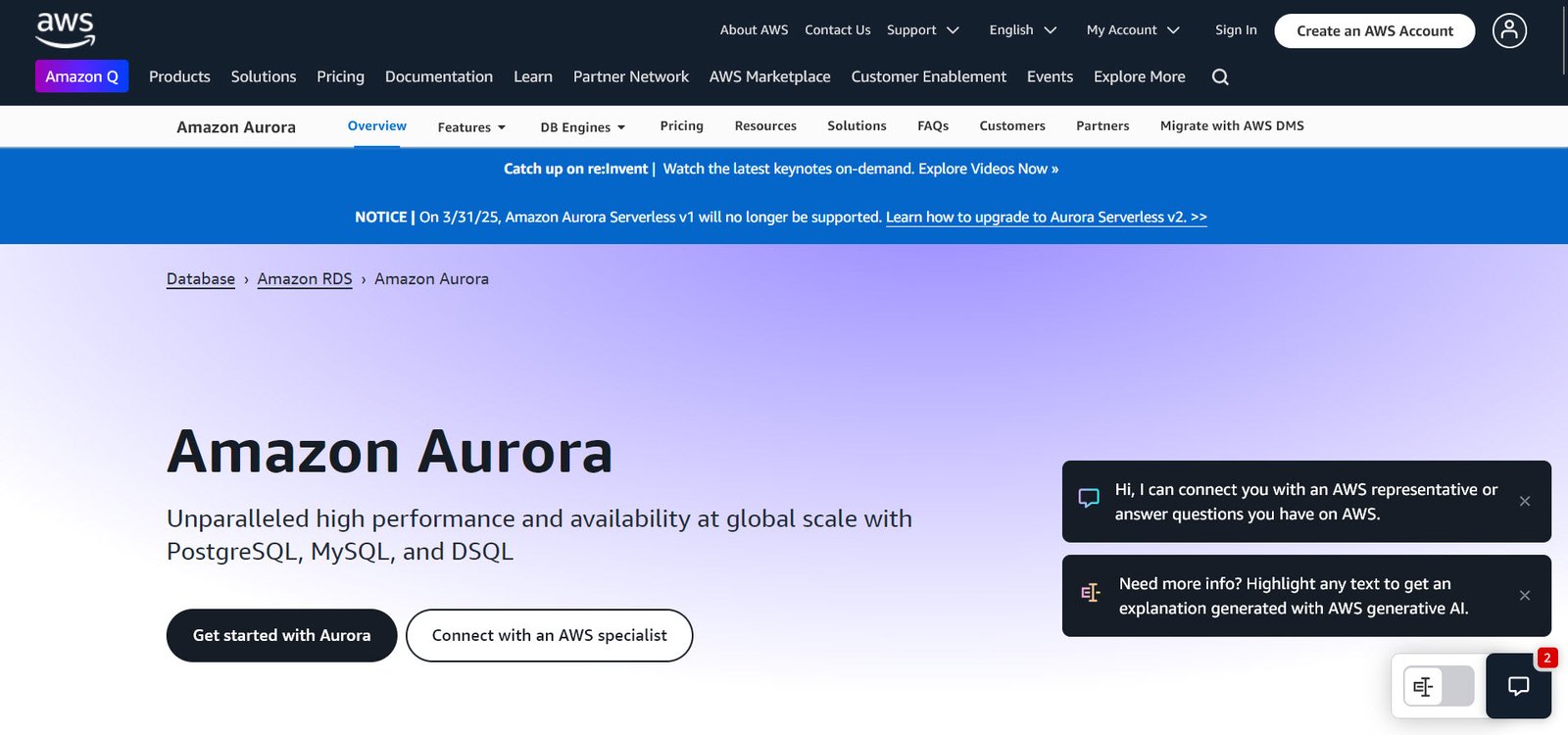
8. Snowflake
Snowflake, a cloud-native data platform, excels in data warehousing and analytics. Unlike traditional databases, Snowflake’s architecture separates storage and compute, allowing each to scale independently for greater cost efficiency.
Its cross-cloud compatibility with AWS, Azure, and Google Cloud provides unparalleled flexibility, while its data-sharing capabilities enable seamless collaboration between organizations. Snowflake’s simplicity, scalability, and focus on big data analytics have made it a popular choice for enterprises aiming to leverage insights for strategic decision-making.

Final Thoughts
Choosing the right database management tool depends on your enterprise’s specific needs, such as workload type, budget, and scalability requirements. Tools like Oracle and Microsoft SQL Server cater to traditional, structured data needs, while solutions like MongoDB and Snowflake address modern challenges in big data and analytics.
By evaluating these tools carefully, enterprises can harness the power of data to drive innovation and growth.




Pingback: Top 8 Virtualization Tools for IT Professionals - TopatTop.com
Pingback: Top 5 Version Control Systems for Teams - TopatTop.com
Pingback: Top 5 Relational Databases for Developers - TopatTop.com
Pingback: Top 10 IDEs for Developers in 2025 - TopatTop.com